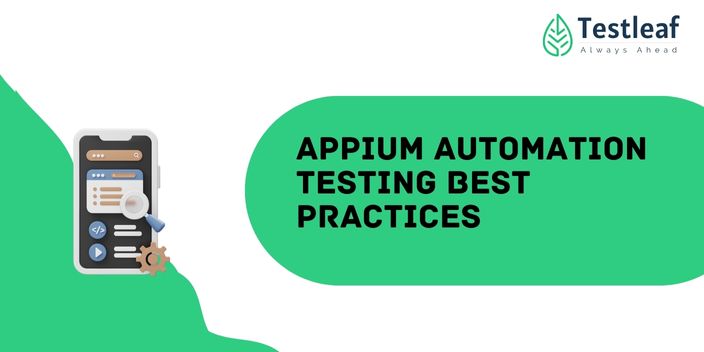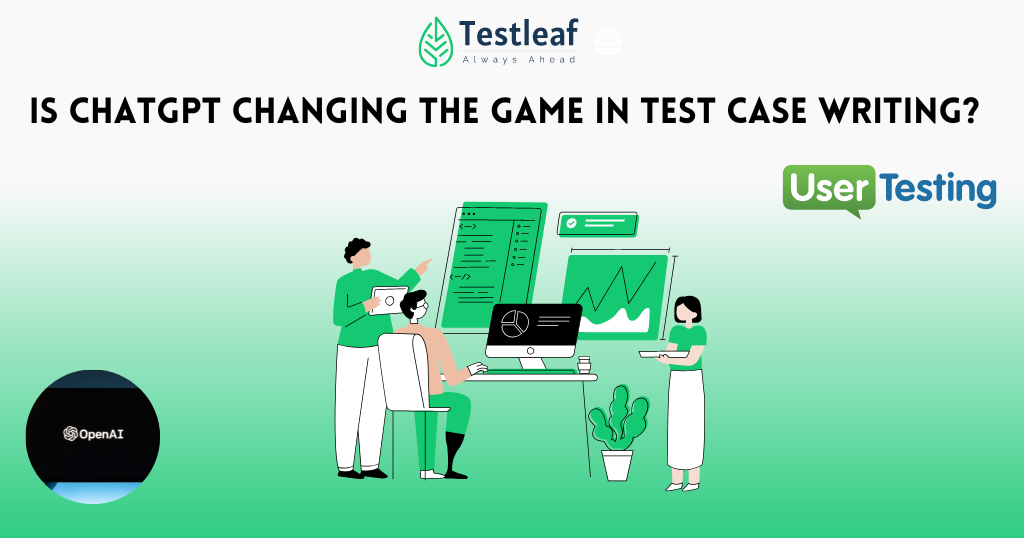The usage of mobile has been increasing tremendously.
As there is an increase in mobile usage, testing for mobile is in demand.
Here Appium Automation comes into play; Mobile applications must operate well and be compatible with various devices to meet rising user expectations.
In this article, let us look into Appium Automation and A Guide for testers to Appium Automation.
If are preparing for an Test automation framework Interview , then read this article Test Automation Framework Interview Questions
What is Appium Automation?
Appium Automation is nothing but an open source cross-testing platform that can be used in iOS, Windows and Android. By providing a common framework that supports several platforms and programming languages, Appium automation makes testing mobile apps more accessible.
Mobile app testers appreciate it because of its adaptability, cross-platform interoperability, and integration capabilities since it enables them to produce high-quality apps with less manual work and more efficiency.
The strength of Appium automation is its capacity to deliver a fluid testing environment across several platforms. With Appium, you can write your tests once and run them across various platforms and devices without changing the code.
This cross-platform feature helps to save time and effort while assuring accurate test results on various mobile devices.
Additionally, Appium enables testers to search for and analyze mobile app components using various methods, including XPath, ID, name, and class names. This adaptability enables testers to engage with certain user interface elements, providing thorough test coverage.
Appium automation works well with well-known testing frameworks and tools, allowing testers to use sophisticated testing features and incorporate their tests into Continuous Integration (CI) pipelines for effective and automated testing workflows.
Appium Mobile Testing
Cross-platform Support:
Appium allows developers to write tests once and execute them on different platforms, saving time and effort in testing across multiple devices.
Device Diversity:
Appium supports a wide range of devices and operating systems, ensuring comprehensive test coverage.
Seamless Integration:
It seamlessly integrates with popular test frameworks like JUnit, TestNG, and Cucumber, enabling easy test creation.
No Need for Source Code Modifications:
Appium enables testing of both native and hybrid apps without requiring any code changes, enhancing code maintainability.

Best Practices To Follow:
Keep up with Mobile Trends
The mobile scene constantly changes, with new devices, operating systems, and app development frameworks appearing often. Keeping up with the most recent mobile trends and technology is crucial if you’re an Appium specialist.
To keep up with the most recent developments and best practices in mobile app development and testing, read industry blogs, attend conferences, and participate in webinars.
Understand several Appium libraries
Your automation efforts can be improved by using one of the many libraries and frameworks that Appium offers. To organize test cases successfully, for example, get to know TestNG or JUnit.
Investigate reporting libraries like Extent Reports or Allure for detailed and eye-catching test reports. These libraries enhance the organization, upkeep, and visibility of tests.
Optimizing the Test Scripts
Test Scripts should Be efficiently Optimized Automation using Appium must be effective. Use implicit and explicit waits wisely in your test scripts to save execution time. Make effective use of XPath and CSS selectors to find items, and think about leveraging page object models to improve the maintainability and reusability of your test scripts.
Testing on real devices
Test with actual hardware and emulators Both real devices and emulators have benefits and drawbacks. In order to provide thorough test coverage, an expert should be well-versed in testing on both. Use emulators for quicker early development execution and genuine devices for device-specific testing.
Including parallel tests
Implement parallel test execution across many devices and OS combinations to speed up your test run.
Implement Continuous Integration
Integrate Appium automation into your CI/CD (Continuous Integration/Continuous Deployment) pipelines. By incorporating your automated tests into the CI process, you can perform regular regression testing and receive immediate feedback on code changes, facilitating quicker bug detection and resolution.
Embrace Cloud-Based Testing Platforms
Leverage cloud-based testing platforms to access a vast array of real devices and configurations without physical hardware. Cloud-based testing allows you to expand test coverage and accommodate a broader range of user scenarios.
These are a few points that every Appium automation tester must know to succeed.
Conclusion
With a clear understanding of these best practices, Appium automation testers can deliver high-quality mobile apps with confidence, meeting rising user expectations and ensuring a seamless user experience.
Take your Appium automation skills to the next level with Testleaf’s Appium automation course in Chennai. Enroll now and unlock your potential in mobile app testing!
Frequently Asked Questions
What are the common tools and frameworks used alongside Appium for mobile testing?
Commonly used tools and frameworks alongside Appium include Selenium WebDriver, TestNG, JUnit, Cucumber, and Maven. These tools enhance test script creation, test management, and reporting capabilities.
Does learning Appium have a bright future?
Yes, as long as the mobile and other devices exist, there is a requirement for Appium too.
What are the best ideas for mastering Appium?
Understand the Appium architecture, document the process, learn the programming language, implement page object model, use unique identifiers etc.
How can Appium automation testers ensure compatibility with various mobile devices?
Testers can achieve compatibility by leveraging Appium’s cross-platform capabilities and writing tests that target different devices and OS combinations. Regularly testing on real devices and emulators helps ensure comprehensive coverage and device-specific testing.






